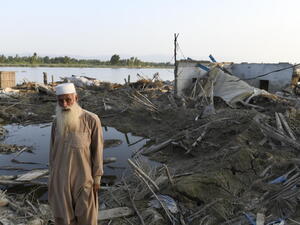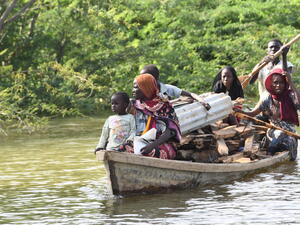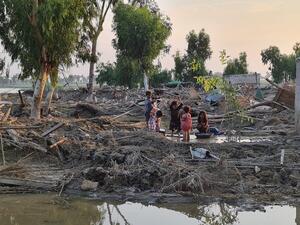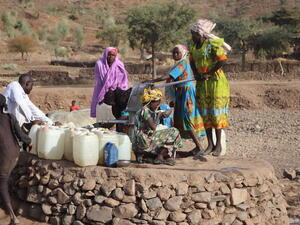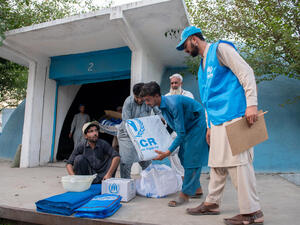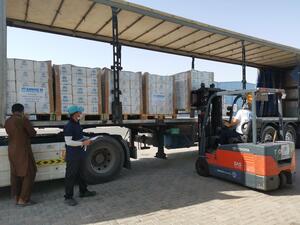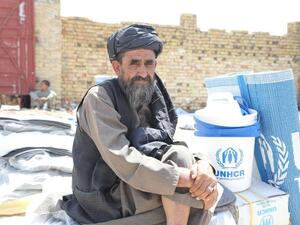UNHCR airlifts supplies to flooded refugee camps in north-east Kenya
UNHCR airlifts supplies to flooded refugee camps in north-east Kenya

The situation remains serious in Ifo camp, where a refugee is seen walking past the flooded warehouse and distribution centre.
NAIROBI, Kenya, November 20 (UNHCR) - The UN refugee agency has begun airlifting emergency supplies for tens of thousands of refugees displaced by massive flooding in north-east Kenya.
On Sunday, a chartered twin-engine de Havilland C-8 Buffalo cargo aircraft made three flights from Nairobi to the town of Dadaab, delivering 2,500 plastic sheets, 28 emergency health kits and 4,400 litres of aviation fuel. The aircraft made a further two flights on Monday and offloaded 10,000 litres of diesel fuel and 200 shovels, which will be used to fill sandbags.
Plastic sheets will help refugees rebuild their shelters, while the sandbags will be used to shore up flood defences in three refugee camps around Dadaab, two of which have been badly affected by the floodwaters. The diesel will be used for vehicles and generators, which drive water pumps and provide power to offices, hospitals and clinics in the camps.
The airlift became necessary after floods cut the only road - and convoy supply route - linking Dadaab and Nairobi. The floods have displaced more than 100,000 of the estimated 160,000 mainly Somalian refugees in Dadaab's camps.
UNHCR workers in Dadaab said the situation continued to deteriorate in the camps at the weekend. They said that while only three deaths had been reported since the onset of the floods, three children went missing on Saturday.
Health and sanitation remain a serious concern. "The general health of the population has deteriorated due to the conditions, lack of food and sleep and difficulty in accessing medical care," a situation report said.
Latrines throughout the camps have been flooded, contaminating standing water and posing a serious health risk. Fever, diarrhoea, eye and skin infections are common. The UN Children's Fund (UNICEF) and other agencies are bringing in vaccines and other supplies to combat the spread of disease.
In Ifo, the biggest camp hosting some 54,000 refugees, a hospital was almost completely flooded on Sunday. The patients had to be transferred to the only ward which was not affected. Flash floods converging on the area have at times resulted in water levels rising as much as half a metre an hour. Three of UNHCR's 10 vehicles have been lost to flooding, along with other equipment.
The UN refugee agency has started moving some refugees from Ifo to Hagadera, which has not been as badly affected by the floods as Ifo and Dagahaley camps. Hagadera is some 20 kms from Ifo.
Negotiations were taking place between UN staff and the local authorities to allow refugees to move to dry areas during this emergency period. Vulnerable people will be given priority during an evacuation, which is expected to take a number of days. UNHCR teams have begun identifying vulnerable refugees who will need transport for the movement to Hagadera. Others will have to walk.
By Emmanuel Nyabera in Nairobi, Kenya

